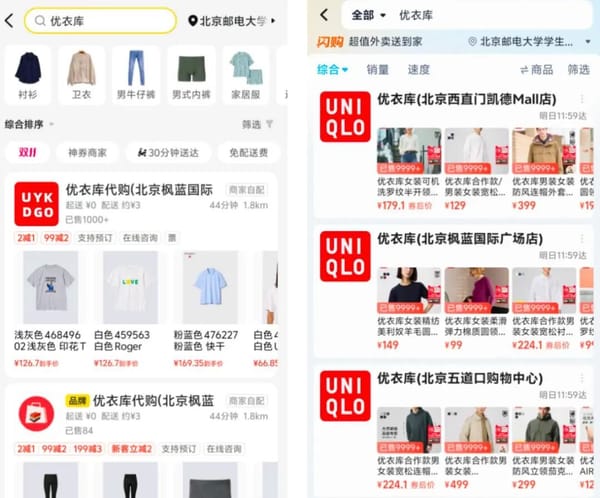# Practical Insights on Acquisition, Conversion, Retention, and Market Understanding
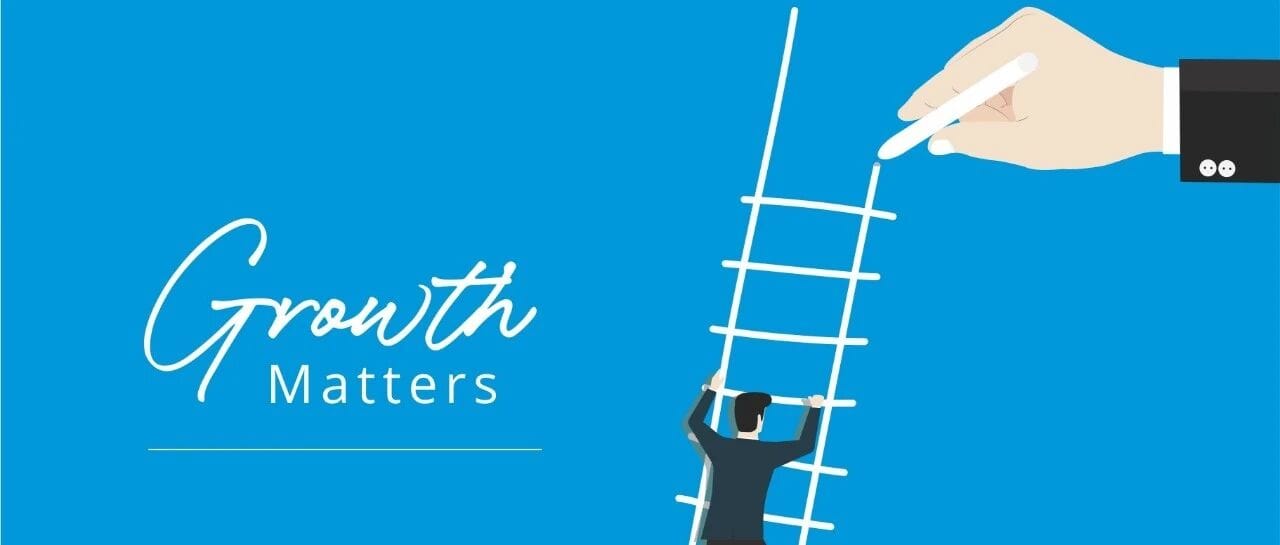
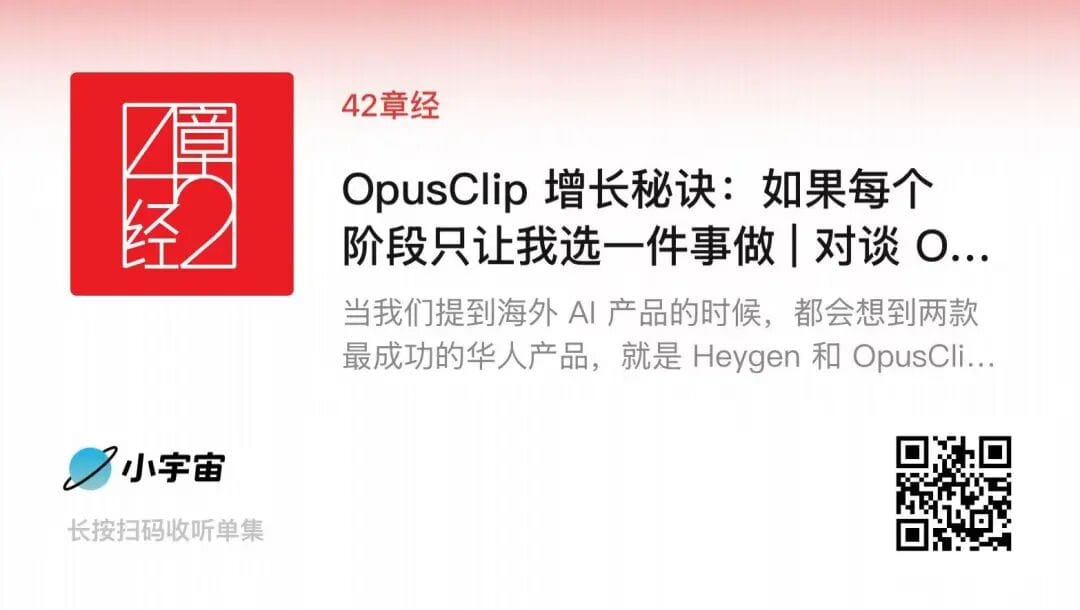
*OpusClip is one of the most successful overseas Chinese AI products in recent years.
We invited **Juntao Xie**, former Head of Growth Product at OpusClip, to share hands-on experience from the company’s growth cycle.*
> This is a condensed version (9,500 words) of the original 18,000-word podcast.
> Part 1 is Xie’s sharing, Part 2 contains supplementary Q&A.

---
## Part 1 — Personal Sharing
### Core Focus at Each Stage
Xie shares the **single most important focus** he prioritizes across different product growth stages.
---
## Acquisition Stage — Common Challenges
Many early-stage teams face similar problems when trying to acquire users:
- **Fake follower metrics** from creators → inflated numbers, low trust.
- **Working through agencies** → limits targeting control, blocks direct creator communication.
- **Unclear target audience** → mixed backgrounds make precise targeting hard.
> Early-stage question to ask: “Are these creators actually *real* users?”
---
### Partners vs. Affiliates
In a cold start, your **first batch** should be **Partners**, not Affiliates.
- **Affiliates**: promote for commission. Not deep product users, limited feedback.
- **Partners**: authentic users, aligned with your vision, willing to co-build and help iterate.
✅ **Early-stage promotion focus** → attract partners committed to shaping the product.
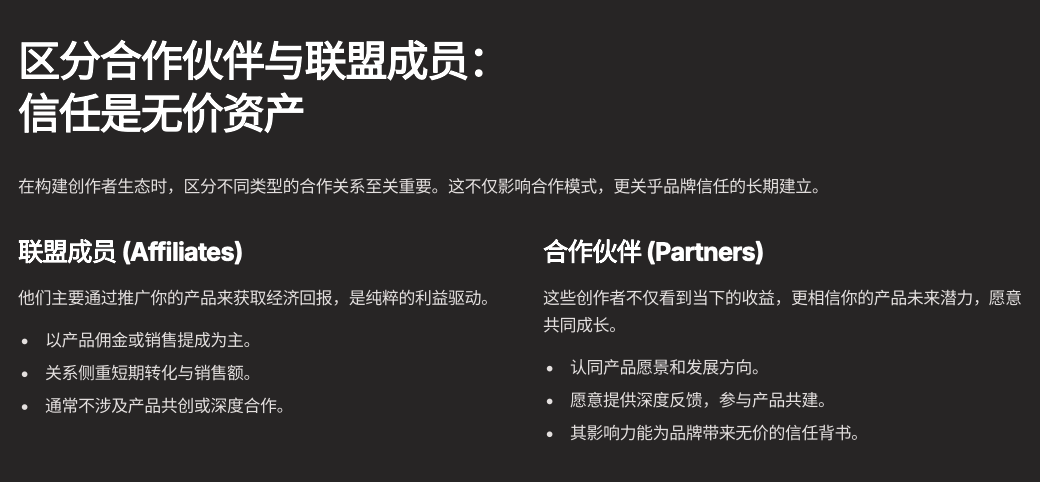
---
### Cold Start for Video Products
When a video product hits **PMF (Product-Market Fit)**:
- Content creators are natural promoters.
- Creators cluster around **KOLs** — early collaboration grants quick access to influencer circles.
**Important:** Don’t burn out creators with “work for love.”
💡 Establish **formal economic relationships** early for sustainability.
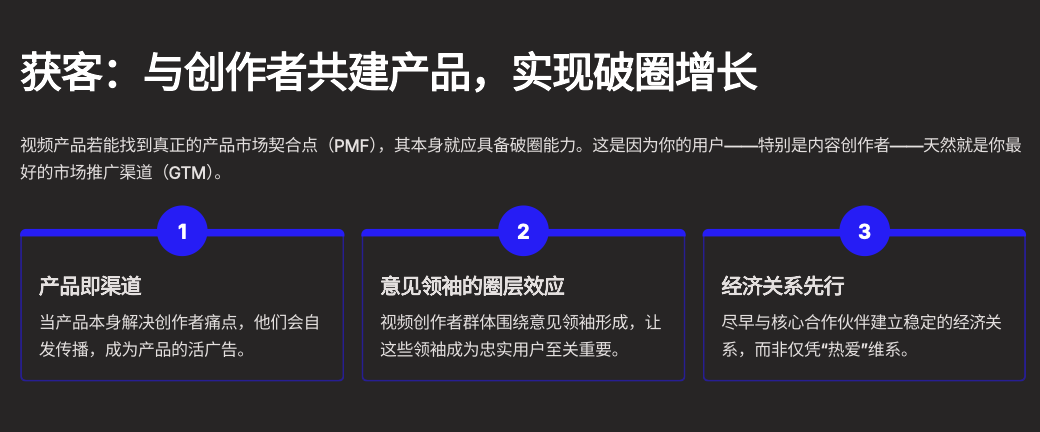
Benefits:
- Creator communities share useful tools → faster traction.
- Real-user promoters target your exact audience.
- Avoid **noise** from indiscriminate acquisition that can cripple iteration.
---
### Building the Loop — OpusClip Example
Opus launched the **Brand Partner Program**:
- Invited actual product users → including top-tier KOLs.
- Partners like *Jon Youshaei* consistently promote (“Edited with OpusClip”).
- Maintained **long-term cooperation** through events and co-marketing.
> This worked because of the **Partner-first** mindset.
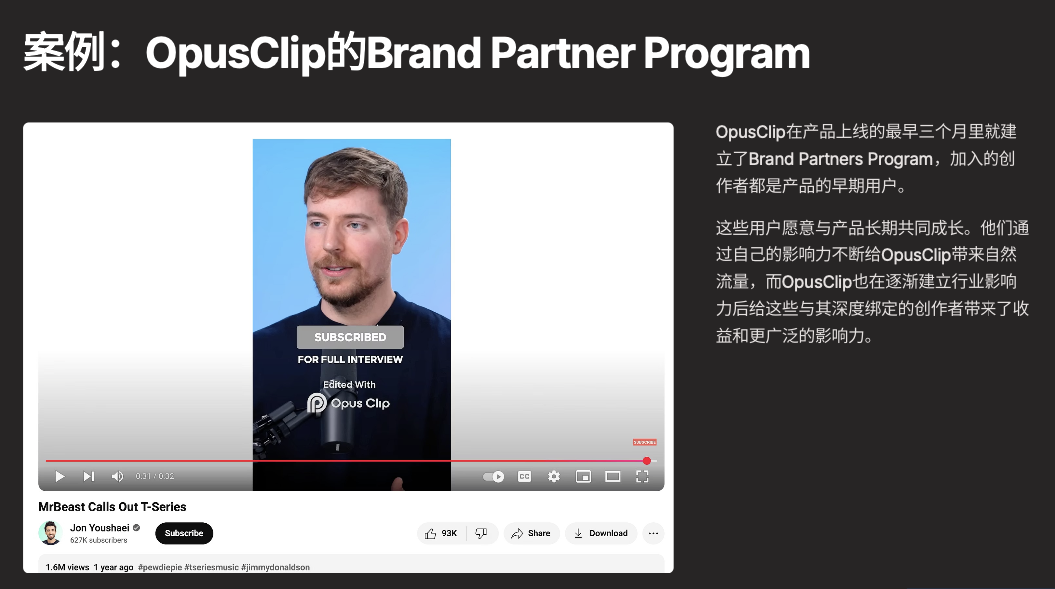
---
### Misconception: “More Channels = Better Cold Start”
Many think early-stage means maximum affiliates + maximum channels.
Opus proved **quality > quantity**:
- Signed **annual contracts with ~10 creators** → massive organic traffic.
- Laser-focus on **precise target users**.
---
## Finding Your First Partners
**Step 1:** Anchor in Specific Community Layer
Example: Podcast creator community → drill down to find true users, seed users, KOLs.
---
## After Cold Start — Accelerating Growth
Paid conversion is the **cornerstone** of scaling.
### Short-term High-certainty Growth Lever → **Pricing Optimization**
> Pricing **should be dynamic** according to stage and user needs.
---
### Examples of Customization-based Pricing
- **RunwayML**: Pro tier allows uploading own voice for AI lip-sync/voice cover.
- **Higgsfield**: Paid tier allows uploading personal photo to maintain character identity.
**Lesson:** Customization is a **powerful paid hook** in creator ecosystems.
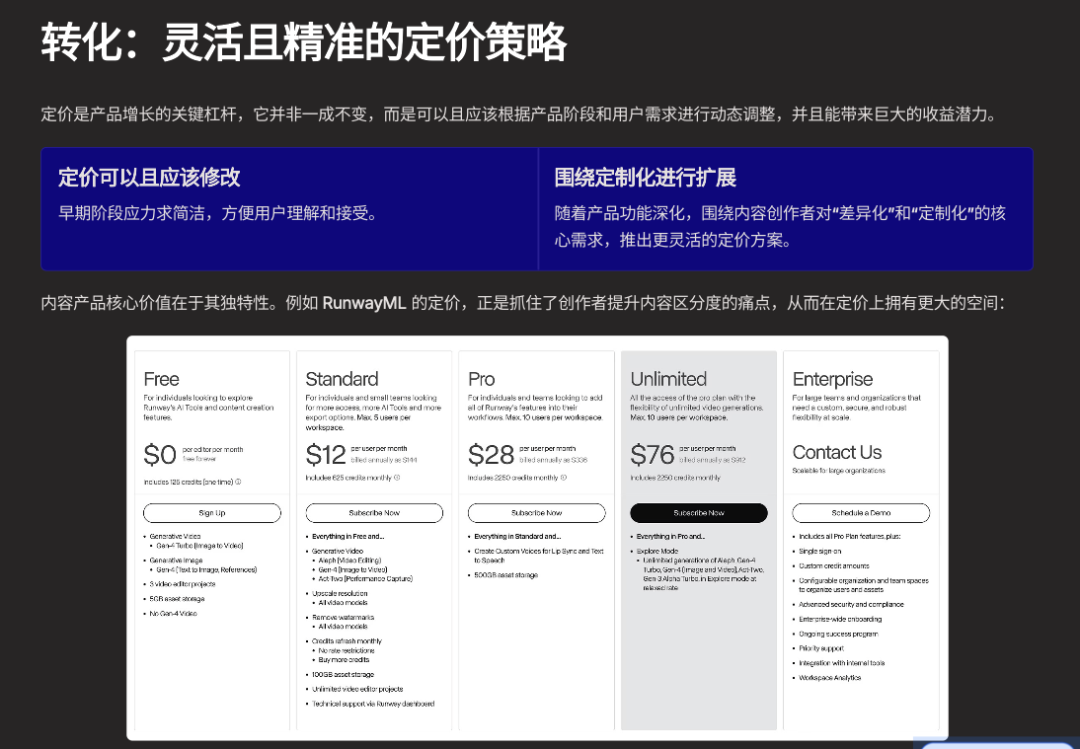
---
### Practical Pricing Guidelines
1. **Protect existing user benefits** → loyalty drives ARR and reputation.
2. **Full lifecycle A/B testing** → always test before committing.
3. **UI matters in pricing** → optimize paywall triggers, feature display, copywriting.
> Small UI tweaks can lift conversion by 30%+.
> **RunwayML** & **Higgsfield** excel at pricing UI.
---
## Retention — The Core Long-term Metric
Retention defines **max paying user base**.
- **High churn** → early plateau & “zero growth” stage.
- **Retention success** = compounding revenue.
Example: 90% retention vs 80% retention → huge user base difference over months.
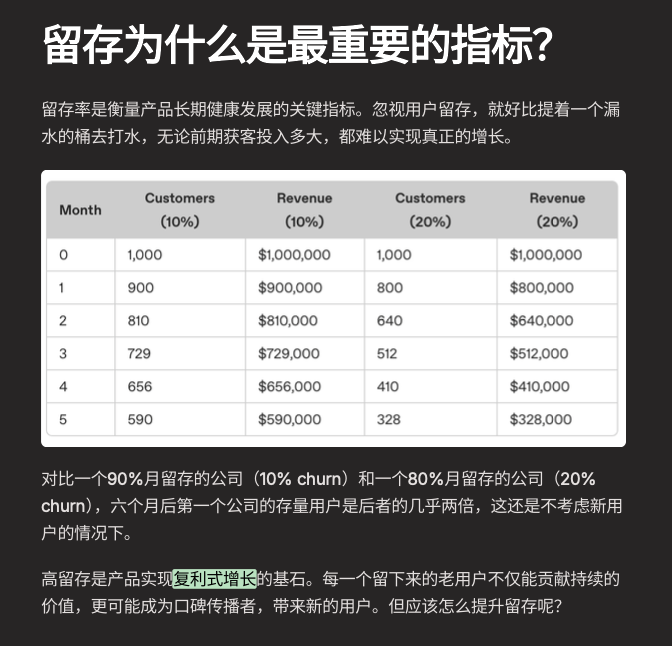
---
### Improving Retention — 70/30 Rule
Patrick Collison (Stripe):
> “70% of product ideas = listening to good user feedback.
> 30% = acting on unspoken needs.”
---
### Building a “User-Centered” Feedback Loop
Primary feedback channels at Opus:
- **Discord** → community brainstorming
- **Intercom** → support + bug reports
- **Canny** → public feature requests
- **Social Media** → monitor brand sentiment
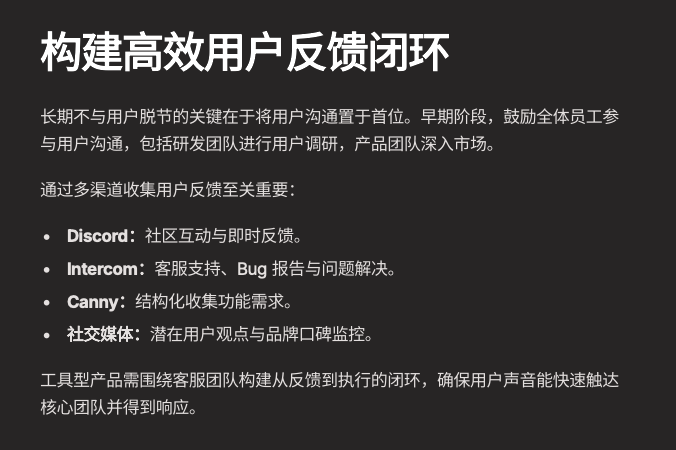
Additional tactics:
- **Email domain analysis** → find hidden ICP segments.
- **Linked social accounts** → spot high-impact existing users.
---
**Internal system:**
- Weekly Top Requests + Top Complaints reports.
- Automation for processing thousands of tickets.
- Close feedback loop → data → product → community updates.
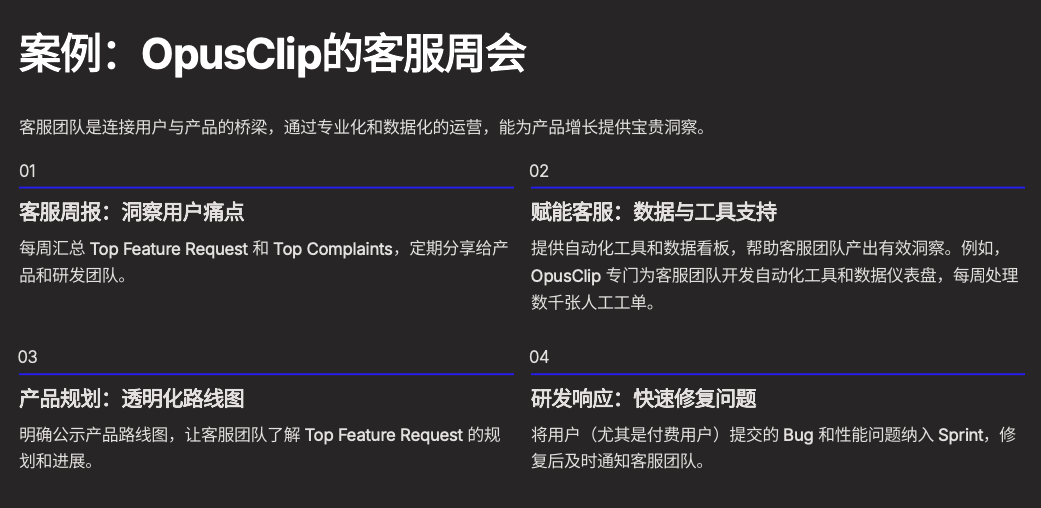
---
## Insights — Leveraging Data
Use data across all stages.
### Early-stage Priorities:
1. **High-certainty actions first** (e.g., pricing tests).
2. **Define conversion funnel** → test step-by-step.
---
### Paywall A/B Testing
Best early test target: **Paywall pop-up**.
Example: *Arcade Software* → triggers paywall after 3 demos, just before publishing 4th → high willingness to pay.
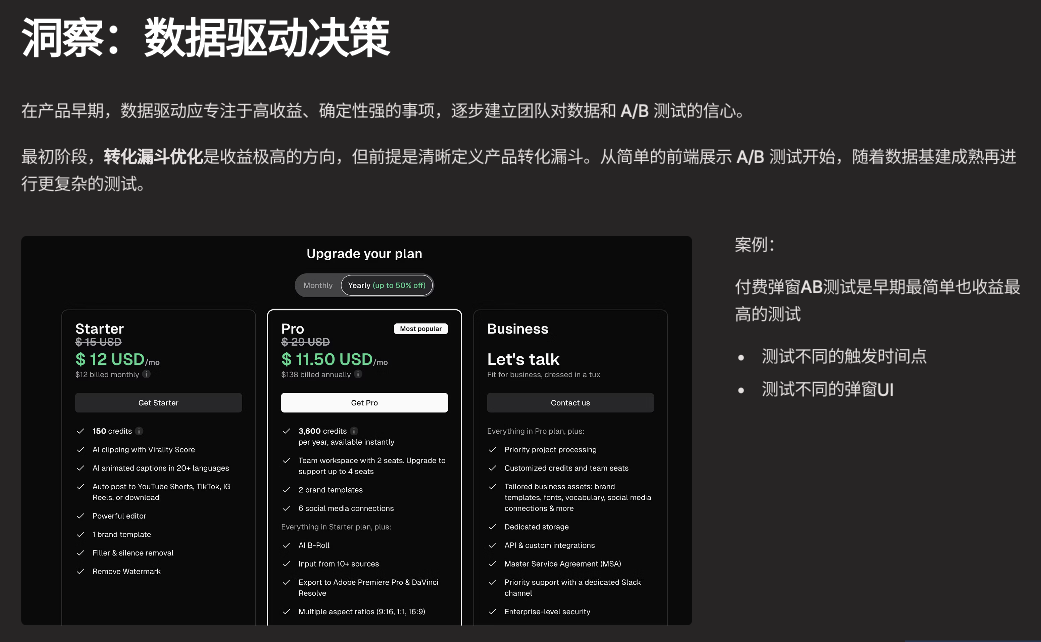
---
### Data Investment Strategy
- **0–50 people:** PMs/engineers using SaaS tools (Statsig, etc.).
- **~50 people:** Hire full-time data analyst.
- **Later:** Data warehouse specialists for compliance & cost control.
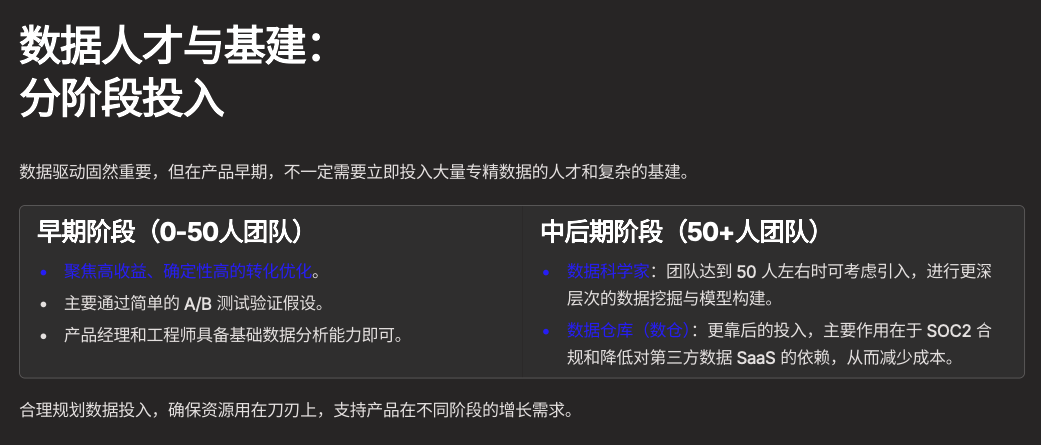
---
## Summary — Four Key Stages
| Stage | Core Principle | Key Action |
|--------------|-------------------------------------------|-------------------------------------------|
| Acquisition | Quality > Quantity in early users | Find **Partners**, not Affiliates |
| Conversion | Dynamic pricing + UI optimization | Protect loyal users, run A/B tests |
| Retention | Build closed feedback loop | Capture 70% explicit + 30% unspoken needs |
| Insights | Data-guided high-certainty actions early | Start simple – optimize paywall triggers |
---
## Part 2 — Q&A Highlights
### Growth Team Structure at Opus
- **Direct-to-Customer Ads** → paid acquisition.
- **KOC/KOL Partnerships** → long-term influencer collaborations.
- **Product Marketing** → ongoing social/media comms with existing users.
- **Growth Product** → in-product A/B tests + team infrastructure.
---
### Key Lessons from A/B Testing
- Highlighting subtitle templates boosted conversion.
- Price discrimination is worth testing.
- Yearly subscriptions improve retention — discount must be tested.
---
### Retention vs Conversion Trade-off
- Paid conversion boosts can harm retention → measure both for net revenue impact.
---
### AI Tools for Efficiency
- **Mintlify + Intercom** → scalable help desk.
- SaaS reminders for past-due payments → raise retry success from 20–30% to 40–50%.
---
### Brand-building as Competitive Moat
- Define a **category**.
- Find a niche community → saturate via KOL partnerships.
- Example: Podcast creators → “long-to-short” editing = OpusClip in their minds.
---
## Final Thought
True growth = **Systematic Execution**:
- Focus on fundamentals.
- Assign capable people to each growth stage.
- Leverage **community, data, and retention loops**.
---
**Related resource:** [AiToEarn官网](https://aitoearn.ai/) — open-source global AI content monetization platform.
Helps creators generate, publish, and monetize across Douyin, Kwai, WeChat, Bilibili, Xiaohongshu, Facebook, Instagram, LinkedIn, Threads, YouTube, Pinterest, X (Twitter) with integrated analytics and model ranking.
---



